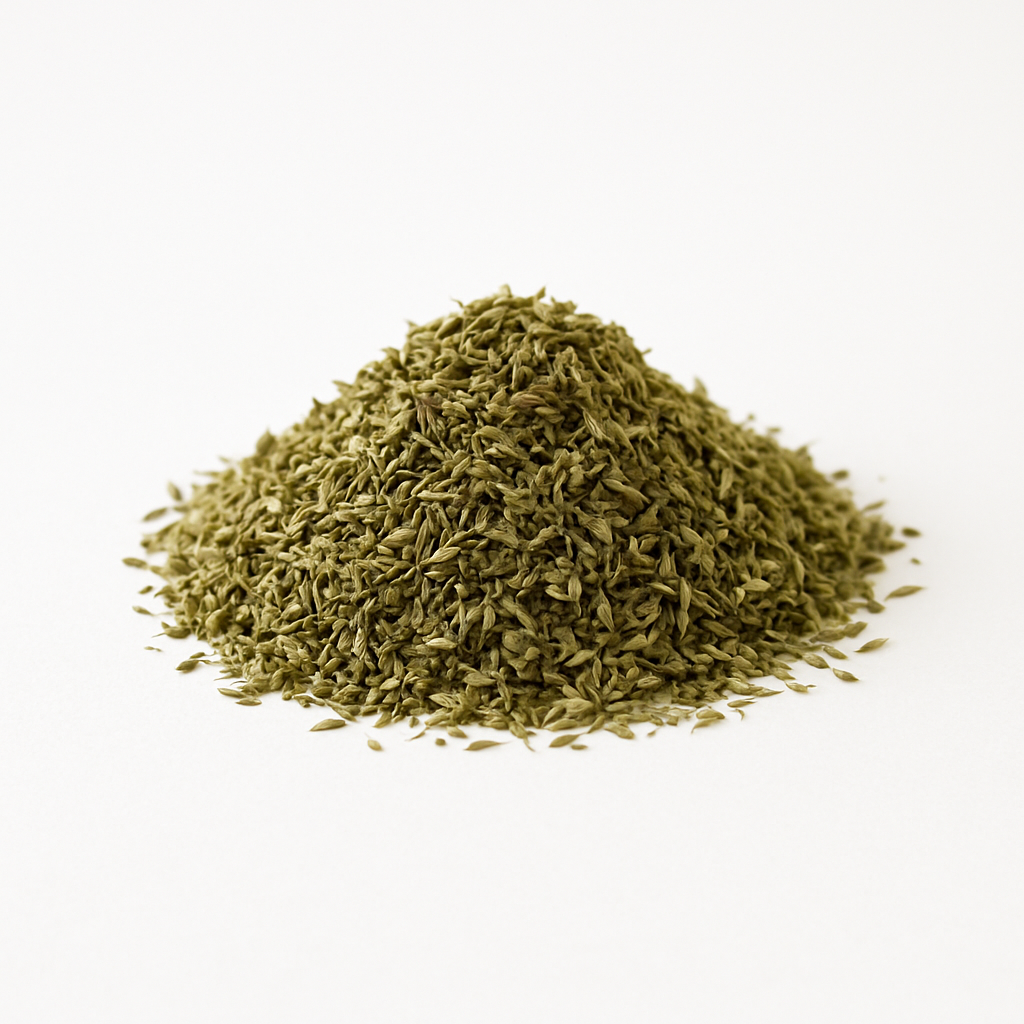Wadi
Wild thyme
Wild thyme
Couldn't load pickup availability
Primary Uses:
1. Culinary:
- Used as a seasoning for meat dishes, stews, and soups
- Added to marinades and rubs for grilled or roasted meats
- Used to flavor sauces and dressings
- Infused in oils and vinegars for added flavor
2. Flavoring:
- Used to add a savory, earthy flavor to dishes
- Complements the flavors of lamb, chicken, and other meats
- Adds depth to vegetarian dishes such as roasted vegetables and lentil soups
3. Aroma:
- Has a strong, herbal aroma that is often used in potpourri and aromatherapy
- Used in perfumes and colognes for its fresh, clean scent
- Added to candles and diffusers for a natural, calming fragrance
Other Uses:
1. Medicinal uses: Wild thyme has been traditionally used to treat respiratory infections, coughs, and sore throats. It is also believed to have antiseptic and anti-inflammatory properties.
2. Culinary garnish: Wild thyme is commonly used as a seasoning in Mediterranean and Middle Eastern cuisine. It adds a fragrant and slightly minty flavor to dishes.
3. Ornamental uses: Wild thyme is often used in landscaping and gardening as a ground cover or border plant. Its small, purple flowers add color and texture to gardens.
4. Folklore uses: In some cultures, wild thyme is believed to have magical properties and is used in spells and rituals for protection and purification.
5. Insect repellent: Wild thyme contains compounds that repel insects, making it a natural alternative to chemical insecticides.
6. Dyeing agent: The leaves and stems of wild thyme can be used to create a natural dye that produces shades of yellow and green.
7. Religious uses: Wild thyme has been used in various religious ceremonies and rituals throughout history, particularly in ancient Greek and Roman cultures. It was believed to have purifying and cleansing properties.
Caution:
1. Limited availability in certain regions
2. Can be difficult to cultivate and maintain
3. May cause allergic reactions in some individuals
4. Strong flavor may not be suitable for all dishes
5. Can be expensive compared to other herbs
6. May have a short shelf life and require frequent replacement
7. Can be easily overused, leading to overpowering flavors in dishes.
Share


